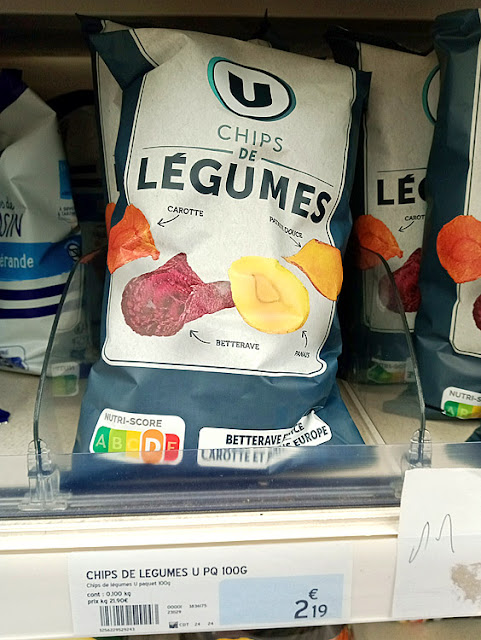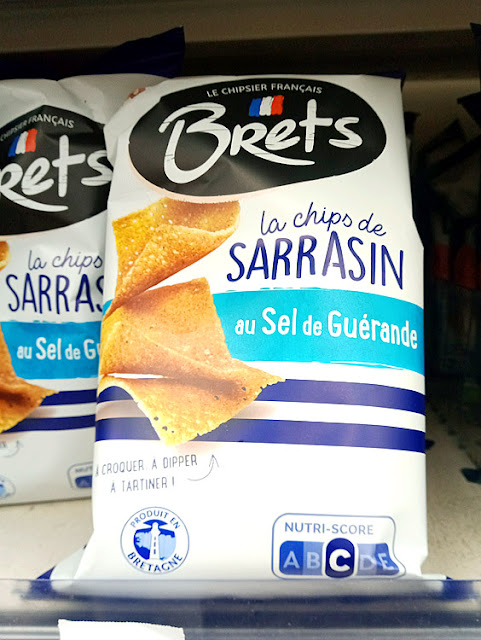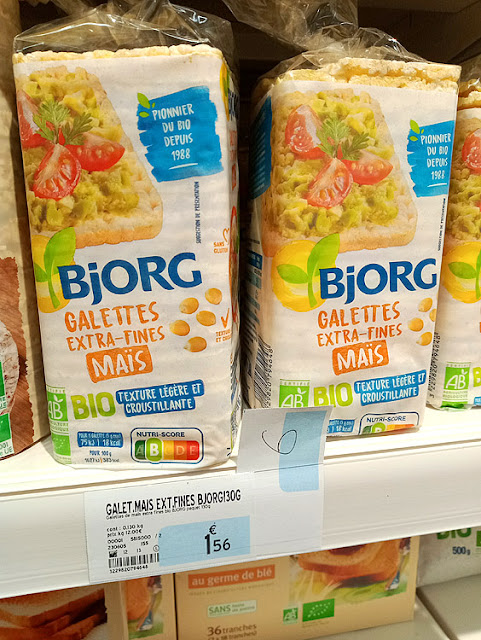France uses a system called Nutri-Score to rate supermarket foods and indicate to consumers how healthy they are. It was developed at the Sorbonne and is periodically reviewed.
Nutri-score A rated supermarket own brand dried red lentils.
At the beginning of the year food and drinks which were too sweet or too salty were particularly targeted for downrating, as was red meat and anything with artificial sweeteners.
Nutri-score C rated supermarket own brand plain crisps.
The five letter, five colour system is well embedded in French shopping habits. At a glance consumers can assess the nutritional quality of an item.
The supermarket own brand root veggie crisps only manage a D on Nutri-Score.
Many ready meals have been downrated, but the sector which took the biggest hit was breakfast cereals, even the ones which have been reformulated in order to score better under the old Nutri-Score rules. Lots of drinks have been reclassified too, for being too fatty, too sweet and too calorific. Drinking yoghurts and flavoured milks were particularly targeted. Plant based milks and bovine milk didn't escape either. Coke Zero got downgraded, as did Lipton's Ice Tea, due to the unacceptable presence of artificial sweeteners.
I was amused that the manufacturers of these Breton buckwheat crisps presumably don't feel the 'traffic light' aesthetic of Nutri-Score fits their brand, and they've chosen to modify it to tasteful blue tones.
Red meat was downgraded to favour poultry and fish, especially oily fish (so long as they aren't salted or oiled). Wholegrains are favoured over processed carbohydrates, so long as there isn't too much added salt. Oils low in saturated fats, such as olive, canola, walnut and sunflower have been uprated, and other oils have been downgraded.
Bjorg corn thins will not show a Nutri-Score in future.
After months of consultations the new Nutri-Scores could have started appearing on supermarket products in January. But manufacturers have two years to comply with the requirement to use the new Nutri-Score on their labels.
Organic ravioli, with a C rating. Also reduced by 30% because it is close to its use by date and must be sold or given to a food bank. By law it cannot be thrown out in the rubbish.
From the outset the project has been a battle with the big industrial food brands. Ferraro, Lactalis, Mondelez and Coca-Cola have been particularly unco-operative and have always refused to use the system. Even the big organic brand Bjorg has withdrawn from the programme as more and more of their products don't meet the criteria.
So if you encounter supermarket products that don't have a Nutri-Score you can be fairly sure they aren't very good for you.







2 comments:
Very interesting. I'll consult Nutri-score next time I get to a supermarket in France.
Carolyn: It can be quite enlightening.
Post a Comment